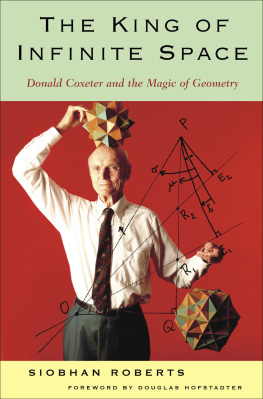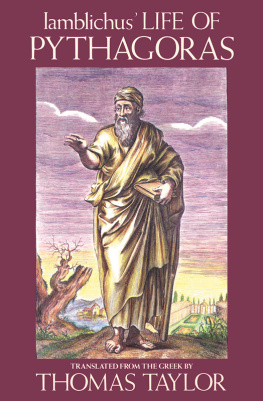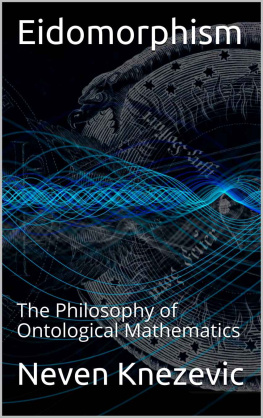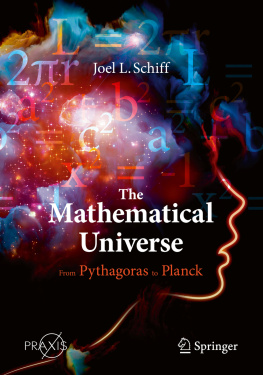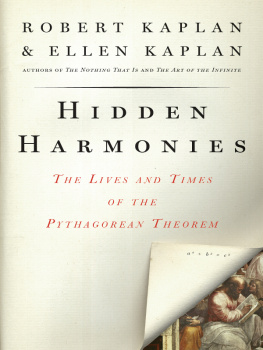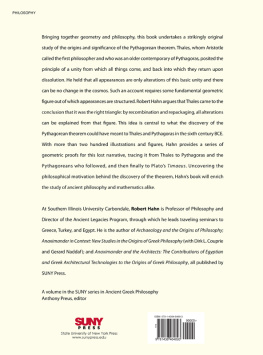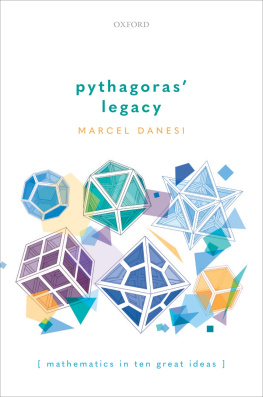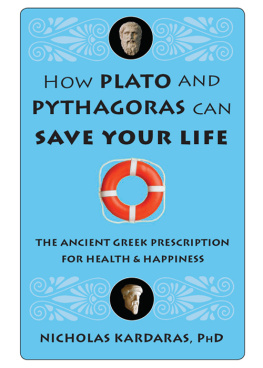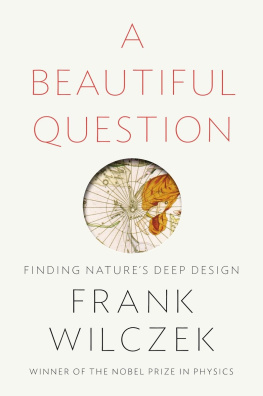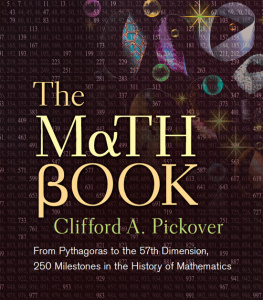The Music of Pythagoras
How an Ancient Brotherhood Cracked
the Code of the Universe and Lit the Path
from Antiquity to Outer Space.
KITTY FERGUSON

Contents
I wish to thank all those friends who, during the years when I was researching and writing this book, have told me about wayssome of them odd and unexpectedthat Pythagoras and the Pythagoreans have made an impact, or at least an appearance, in their own fields of study and interest. I also wish to thank my husband, Yale, for the help he has given me out of his own historical knowledge and library, his wonderful company on research journeys to Samos and Crotone, and his invaluable early critique of this book; Eleanor Robson, for her patient help in the area of Mesopotamian mathematics; John Barrow, for calling my attention to the Sulba-Stras and reconstructing the tunnel of Eupalinos on Samos for me out of a dinner napkin; the staff of the Museo Archeologico Nazionale di Crotone for their extraordinary helpfulness; and the librarians at the Chester Public Library, for their skill and willingness when I came to them with numerous unusual interlibrary loan requests.
To Serafina Clarke

CHAPTER 0
At the hinge of
legend and history
ON THE AEGEAN ISLAND OF Samos, on the narrow arm of the harbor that juts farthest out to sea, there is a stark, skeletal structure. Immense shards of iron look as though they have fallen from the sky in the shape of a huge right triangle. One end of the diagonal has buried itself in the ground. Instead of a vertical line rising from the right angle, there is the statue of a manlean, elongated, taller than life. He is reaching up with his right arm as though to conjure down the broken piece of iron that, if it were complete, would form the vertical of the triangle. Between his fingers and its lowest tip is a gap, such a gap as separates the finger of God from the finger of Adam in the ceiling of the Sistine Chapel. The triangle is not this mans creation. It is as old as the universe, as old as truth.
There is no argument but that this monument captures Western civilizations image of Pythagoras, a native son of this magical island. The triangle is his classic symbol... but, more authentically, he has become the icon of an unexplained but undeniable gift: the ability of human minds to connect with the bedrock rationality of the universe.
Behind all the veneration of Pythagoras and the undeniably great heritage attributed to him and his followers, behind the assumptions about his accomplishments, the uncritical early biographies, the legends, the debunkings, the forgeries, there was a real person. Who he was, actuallyexcept for illusive wisps of informationis lost in the past.
Pythagoras and the devotees who surrounded him during his lifetime were obsessively secretive. As far as is known, they left no writings at all. There is no scroll, no text, no fragment, no firsthand account by any witness, no artifact for archaeologists to scrutinize, no tablet to decipher. If such ever existed, they no longer did by late antiquity. The earliest written evidence about Pythagoras himself that modern scholarship accepts as genuine consists of six short fragments of text from the century after his death, found not in their originals but in works of ancient authors who either saw the originals or were quoting from earlier secondary copies. The Pythagorean doctrine of reincarnation is the subject of three of these fragments, two of which also mention Pythagoras courage, knowledge, and wisdom. Two others are scornful and derogatory. The sixth is a backhanded compliment in the middle of an unrelated story by the historian Herodotus, who termed Pythagoras by no means the feeblest of the Greek sages. None name any discoveries, pinpoint any quotable wisdom or scientific contribution, or give biographical details. Though some treatises about Pythagoras tell you that his contemporaries seem not to have been aware of his existence, that was not the case, for all these fragments assume that Pythagoras was a famous man whose name readers would recognize. That, of course, has continued to be true for two thousand, five hundred years, in spite of the fact that as early as the time of Plato, in the fourth century B.C., Pythagoras and the Pythagoreans were already a mystery, and today they are often described as an ancient cult about whom almost nothing is known.
Those six early fragments are not, however, the full extent of the available evidence about the Pythagoreansthose men and women who followed Pythagoras during his lifetime and who in later generations went on trying to live out his teachings. Philolaus, a not-so-secretive Pythagorean, wrote a book fifty to seventy-five years after Pythagoras death, revealing that early Pythagoreans proposed that the Earth moves and is not the center of the cosmos. Plato knew Pythagoreans in the fourth century B.C., was strongly influenced by the idea of the role of numbers in nature and creation, and tried to incorporate what he thought of as a Pythagorean curriculumthe quadriviumat his Academy in Athens. Aristotle and his pupils wrote extensively about the Pythagoreans a few years later, relying on earlier material that still existed then but has since vanished, and on carefully chosen living spokesmen for the oral tradition, before a time when that became contaminated by forgeries. This present book will return frequently to the issues of evidence and how it was and is evaluated. It seems no other group has ever made such an effort to remain secret, or succeeded so well, as the Pythagoreans didand yet become so celebrated and influential over such an astonishingly long period of time.
In an attempt to cut through the multilayered veil of twenty-five centuries that hangs between us and whatever happened on the ancient isle of Samos and in the harbor city of Croton, skeptical twentieth-century historians insisted on discarding all but the most concrete, hard historical evidence. Though certainly they were right to believe a corrective was needed, they arguably pruned too much, applying standards of their own time to an era for which it was inappropriate and even misleading to do so. The tiny core of truth left after discounting all folk wisdom, semi-historic tradition, legend or what might be only legend, and blatant forgeries and inventions can be stated in one paragraph:
Pythagoras of Samos left his native Aegean island in about 530 B.C. and settled in the Greek colonial city of Croton, on the southern coast of Italy. Though the date of his birth is not certain, he was probably by that time about forty years old and a widely experienced, charismatic individual. In Croton, he had a significant impact as a teacher and religious leader; he taught a doctrine of reincarnation, became an important figure in political life, made dangerous enemies, and eventually, in about 500 B.C., had to flee to another coastal city, Metapontum, where he died. During his thirty years in Croton, some of the men and women who gathered to sit at his feet began, with him, to ponder and investigate the world. While experimenting with lyres and considering why some combinations of string lengths produced beautiful sounds and others did not, Pythagoras, or others who were encouraged and inspired by him, discovered that the connections between lyre string lengths and human ears are not arbitrary or accidental. The ratios that underlie musical harmony make sense in a remarkably simple way. In a flash of extraordinary clarity, the Pythagoreans found that there is pattern and order hidden behind the apparent variety and confusion of nature, and that it is possible to understand it through numbers. Tradition has it that, literally and figuratively, they fell to their knees upon discovering that the universe is rational. Figuratively, at least, is surely accurate, for the Pythagoreans embraced this discovery to the extent of allowing numbers to lead them, perhaps during Pythagoras lifetime and certainly shortly after his death, to some extremely farsighted and also some off-the-wall, premature notions about the world and the cosmos.



